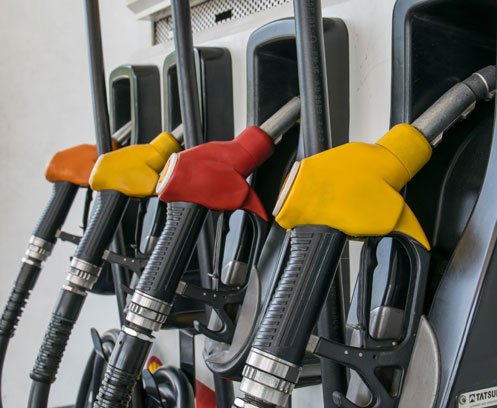Why Is Germany Emerging as a Powerhouse in the E-Fuel Market? Growth Trends & Clean Energy Potential

Germany is rapidly emerging as a global pioneer in the E-Fuel Market, a sector vital to the country’s ambitious climate objectives and energy transition plans. E-fuels, which are synthetic fuels produced using renewable electricity and captured carbon dioxide, offer a promising solution for decarbonizing transport, aviation, and industrial applications, especially in areas where direct electrification remains challenging. According to the latest market research report, Germany’s e-fuel market is projected to grow from an estimated 281 million liters in sales by 2027 to a staggering 804 million liters by 2034, registering an impressive compound annual growth rate (CAGR) of 30.5% during this period.
The surge in e-fuel adoption is closely tied to Germany’s commitment to reduce greenhouse gas emissions by 65% by 2030 compared to 1990 levels, with the transport sector contributing between 20–25% of national emissions. E-fuels, including E-gasoline, E-diesel, and E-kerosene, are strategically designed to integrate with existing fuel infrastructure while drastically lowering lifecycle carbon emissions. This makes them indispensable in aviation and heavy-duty transport sectors where battery-electric solutions are not yet viable.
Innovations Powering the Market Growth
The German e-fuel industry is characterized by several technological and policy-driven trends driving its robust growth. Foremost among these is the rise of modular Power-to-Liquid (PtL) plants, such as INERATEC’s ERA ONE facility in Frankfurt. This 7 MW commercial-scale plant exemplifies localized and scalable e-fuel production, synthesizing sustainable aviation fuel (SAF) and synthetic diesel from renewable electricity and captured carbon dioxide (CO2). By reducing logistical costs and enabling flexible production capacity expansion, this modular technology supports Germany’s leadership in decentralized e-fuel manufacturing.
Renewable energy integration is another cornerstone of the market. Germany generated over 45% of its electricity from wind and solar power in 2023, providing a clean energy source essential for hydrogen production via electrolysis, a critical step in e-fuel synthesis. This direct coupling of renewable electricity and synthetic fuel production allows truly carbon-neutral fuel outputs. However, this energy-intensive process requires a significant renewable electricity supply, posing infrastructure challenges that Germany is addressing through the strategic co-location of production plants near renewable energy sites and intelligent grid management.
Diverse Fuel Portfolio for Multiple Industries
The German e-fuel market is not monolithic but instead diversified across several fuel types, each tailored for different applications. E-kerosene holds the largest market share at approximately 30.2%, driven by aviation’s urgent need for sustainable fuel alternatives to reduce carbon footprints and contrail effects. E-diesel, accounting for nearly 27.8%, serves heavy-duty transportation and maritime sectors where electrification hurdles remain significant. E-gasoline steadily gains ground, with an approximately 18.7% market share, as it is compatible with existing automotive infrastructure while substantially reducing emissions.
Emerging synthetic fuels, such as E-methane (20.9%) and E-methanol (approximately 1.1%), are gaining traction in the industrial and maritime sectors, leveraging existing gas distribution networks and offering cleaner combustion options. Additionally, advanced fuels like E-ammonia and hydrogen-derived synthetic fuels, though niche today, represent the future frontier of carbon-free energy carriers for specialized industrial and energy storage applications. This balanced fuel portfolio showcases Germany’s strategic approach to achieving deep Decarbonization across sectors.
Government Initiatives and Industry Collaboration
The strong policy framework supporting Germany’s e-fuel market is a critical growth driver, highlighted by the National Hydrogen Strategy, which allocates over €9 billion to advance hydrogen and Power-to-Liquid projects. This governmental backing helps offset the high production costs and encourages investments in pilot and commercial-scale facilities.
Major industry players shaping the market include INERATEC GmbH, Sunfire SE, Spark e-Fuels GmbH, German eFuel One GmbH, and HCS Group GmbH. For instance, INERATEC’s ERA ONE plant produces up to 2,500 tonnes of carbon-neutral e-fuel annually and aims to expand its capacity further by 2030. Sunfire SE targets 500 MW electrolyser capacity to fuel e-fuel initiatives, while German eFuel One GmbH plans a facility producing 75 million liters annually by 2028.
Public-private partnerships and EU funding enhance collaborative efforts to scale production, improve cost competitiveness, and optimize plant operations through AI-driven monitoring and predictive maintenance, which is crucial for commercial viability.
Overcoming Challenges for a Sustainable Future
While the e-fuel market shows tremendous promise, it faces significant challenges, notably the substantial renewable electricity demand required for production, which is approximately 50–55 kWh per liter of synthetic diesel, potentially straining national energy infrastructure. Balancing renewable electricity use across various sectors, including residential, industrial, and battery-electric vehicles, will require advanced grid solutions and intelligent energy management.
Policymakers promote co-locating renewable generation and e-fuel plants to reduce transmission losses and infrastructure stress. Moreover, ongoing investments in renewable capacity expansion, energy storage, and grid modernization are essential to sustain and scale e-fuel production without compromising Germany’s overall energy reliability and climate goals.
Outlook: A Global Leader in Green Fuel Innovation
Germany’s e-fuel market is on course to become a linchpin in Europe’s and the world’s energy transition landscape. With projected volume growth from 281 million liters in 2027 to 804 million liters by 2034 at a 30.5% CAGR, it offers scalable, decarbonized fuel solutions for sectors where electrification falls short. The integration of cutting-edge technology, robust government support, and renewable energy resources positions Germany as a frontrunner in synthetic fuel innovation and commercialization.
As the global push for sustainable fuels intensifies, Germany’s experience and infrastructure will serve as a model for other nations aiming to achieve net-zero emission targets while maintaining energy security and economic vitality.